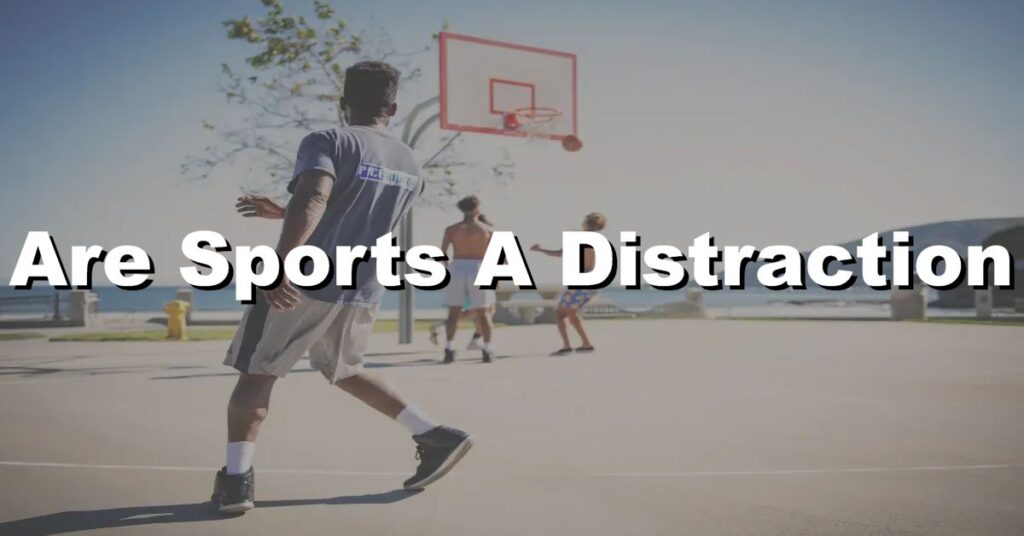Sports have been a major source of entertainment for people all around the world. They offer a chance for people to unwind and escape from their daily routines. However, there are also those who argue that sports can be a distraction, taking away attention from more important issues.
In this blog post, we will examine both sides of the argument and try to come to a conclusion on whether sports are a distraction or not.
The Pros and Cons of Watching Sports as a Distraction
Watching sports can be an enjoyable and entertaining distraction from the daily stresses of life. It provides a temporary escape and allows individuals to immerse themselves in the excitement and passion of the game. Sports can serve as a source of relaxation, helping to alleviate mental and emotional fatigue.
Additionally, being a sports fan can foster a sense of belonging and camaraderie, as it provides opportunities to connect with others who share similar interests.
However, like any form of distraction, there are potential drawbacks to excessive sports-watching. Spending excessive time and energy on sports can detract from other important aspects of life, such as work, relationships, and personal goals.
It can become a time-consuming habit that hinders productivity and prevents individuals from engaging in other fulfilling activities. It’s essential to find a balance and ensure that sports-watching doesn’t overshadow other responsibilities and priorities.
How to Balance Sports and Productivity
Maintaining a healthy balance between sports and productivity requires conscious effort and effective time management. Setting boundaries and establishing designated times for watching sports can help prevent excessive indulgence and ensure that other tasks and responsibilities are not neglected.
Creating a schedule that allocates specific periods for work, personal pursuits, and sports-watching can help individuals stay focused and productive. Additionally, practicing self-discipline and avoiding excessive multitasking during sports events can enhance productivity.
The Psychological Effects of Using Sports as a Distraction
Using sports as a distraction can have positive psychological effects. It allows individuals to shift their attention away from stressors and immerse themselves in an enjoyable and engaging activity.
Sports-watching can stimulate feelings of excitement, joy, and anticipation, which can contribute to overall well-being and mental health. It can also serve as a source of inspiration and motivation, as individuals may admire athletes’ skills and determination.
However, it is essential to be mindful of the potential negative psychological effects of relying solely on sports as a distraction. Using sports as an avoidance strategy to escape from underlying emotional or psychological issues can be detrimental in the long run. It’s important to address and confront any underlying challenges or stressors rather than solely relying on sports as a means of temporary relief.
Can Sports Actually Improve Focus and Productivity?
Engaging in sports, whether as a participant or a spectator, has the potential to improve focus and productivity. Sports require mental and physical discipline, which can translate into other areas of life. Participating in sports activities can enhance cognitive functions, such as attention, memory, and problem-solving skills.
Additionally, being a sports fan and following games can foster a sense of competition and drive individuals to set goals and work towards achieving them.
However, it’s important to note that the extent to which sports directly improve focus and productivity can vary among individuals. While sports can provide motivation and inspiration, translating that motivation into increased productivity in other areas of life requires personal commitment, effective time management, and goal-setting strategies.
The Impact of Social Media on Sports Distraction
Social media has significantly impacted the way sports are consumed and experienced. Platforms such as Twitter, Facebook, and Instagram have become hubs for sports-related content, discussions, and updates. While social media offers opportunities for fans to connect, share their passion, and engage with sports communities, it also poses challenges in terms of distraction.
The constant stream of sports-related content on social media can easily divert attention and hinder productivity. The addictive nature of scrolling through updates and engaging in online discussions can consume significant amounts of time.
To mitigate the impact of social media on sports distraction, individuals can establish healthy boundaries and implement strategies such as setting time limits for social media use, disabling notifications during focused work periods, and consciously choosing when and how to engage with sports-related content online.
Conclusion
In conclusion, sports can be a healthy and enjoyable form of entertainment for many people, but they can also become a distraction when they interfere with other important aspects of life. It’s important to find a balance and prioritize responsibilities while still enjoying sports as a leisure activity.

